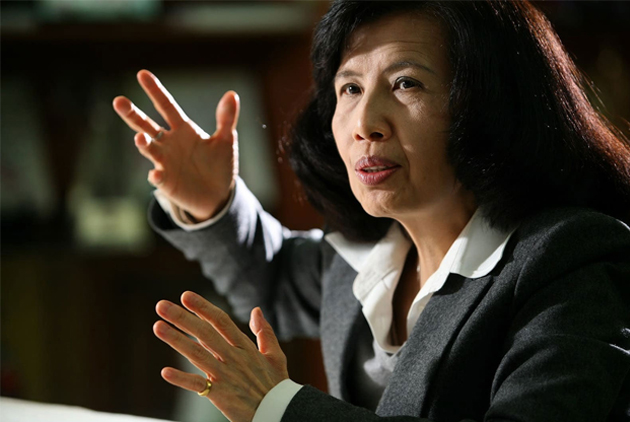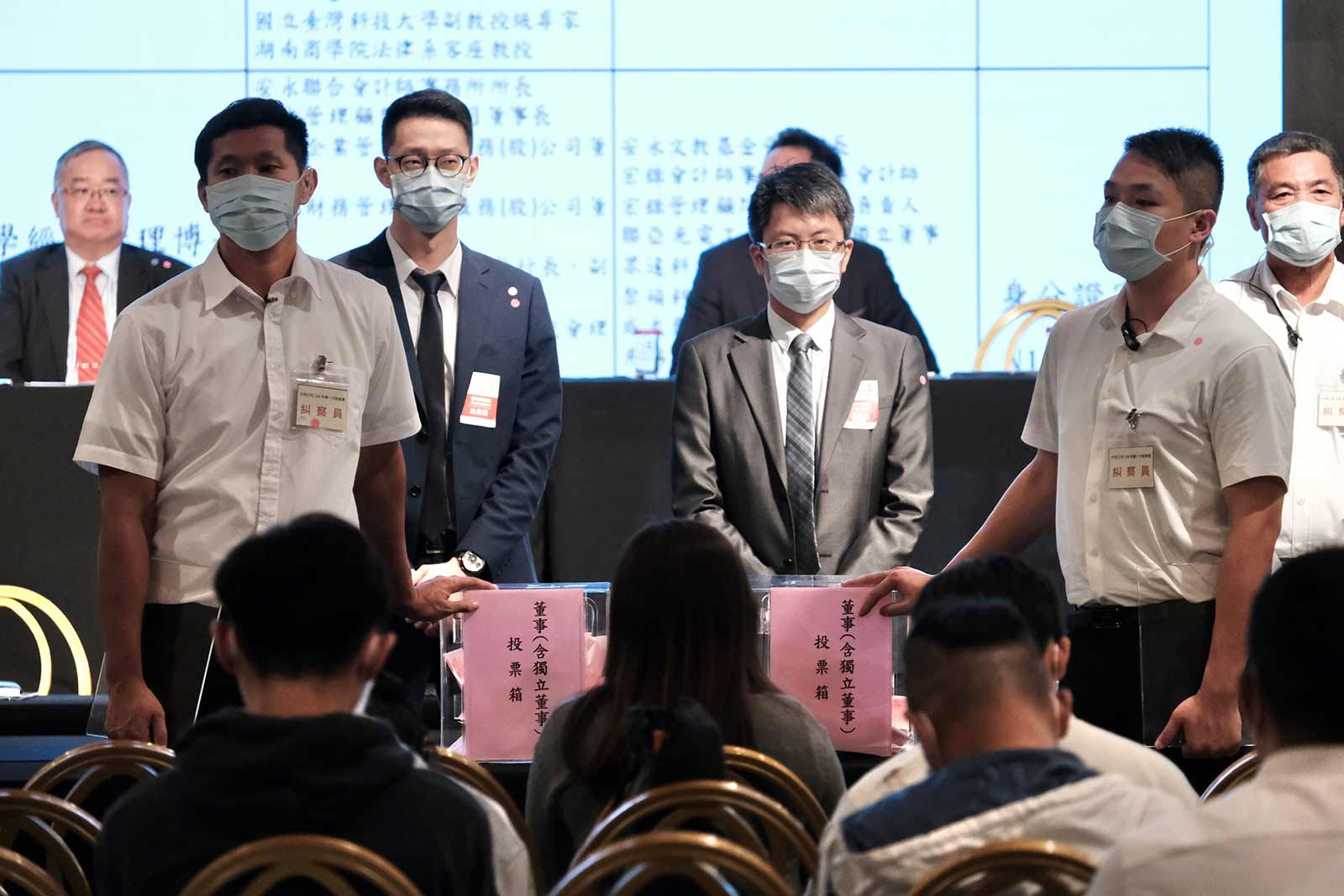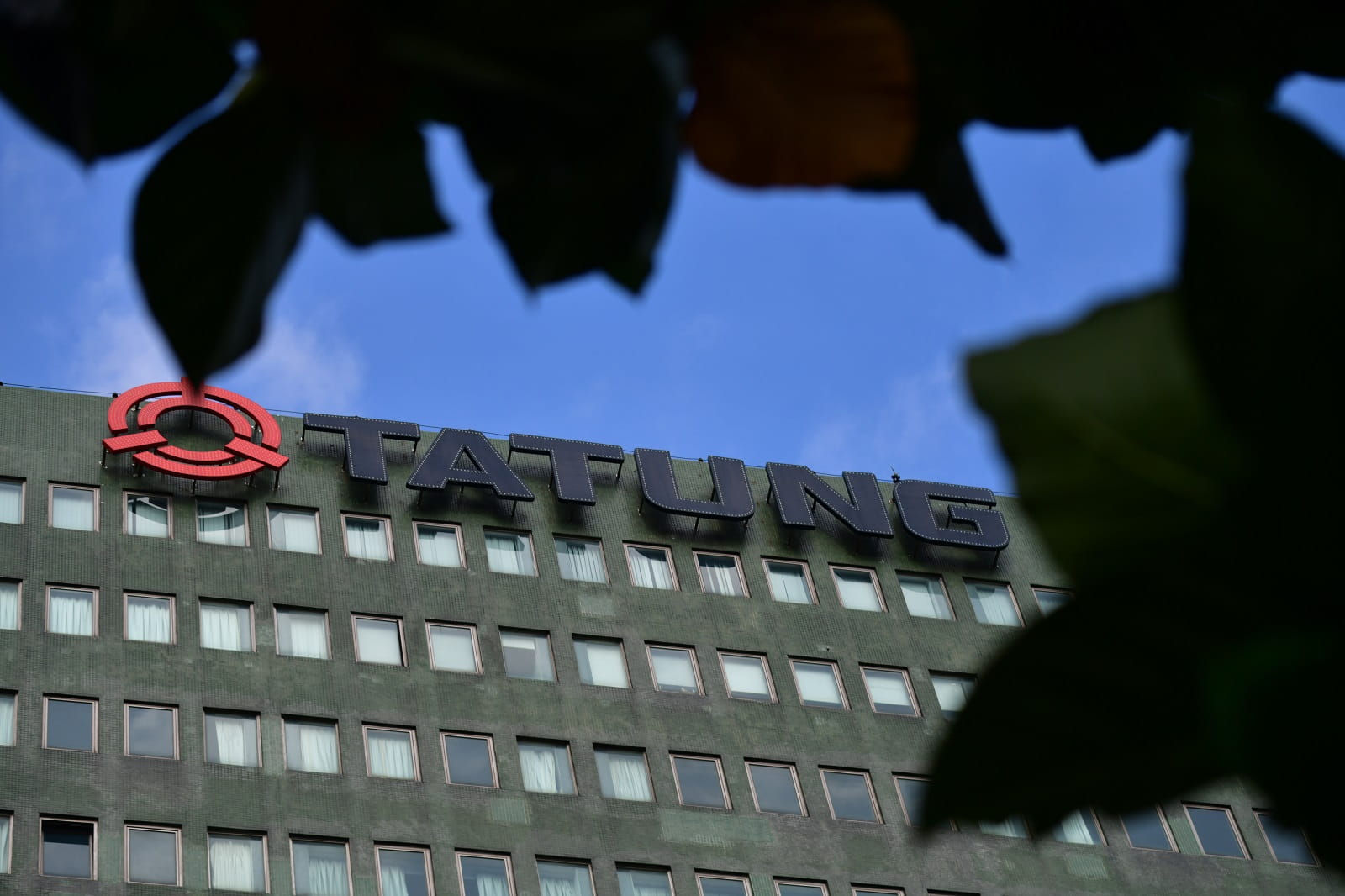How Century-old Tatung Fell Apart

Source:CommonWealth Magazine
Tatung was once the soul of Taiwan’s industrial rise. But this century-old enterprise has fallen on hard times, its property the only remaining asset of value. What sent Tatung into decline and set off a long period of infighting that only now may be coming to an end?
Views
How Century-old Tatung Fell Apart
By Chohan Yangweb only
It only took a couple of hours for the Lin family to lose management control of Tatung, a company that had been in its hands for a century.
On the morning of Oct. 21, activist investors, known as the “market faction,” scored a comprehensive victory when Tatung shareholders voted at an extraordinary shareholders meeting to give the faction seven of the nine seats on the company’s board of directors.
It was the first time ever that outsiders had gained an absolute majority of board directors. The only seat remaining in the hands of the “company faction” representing the Lin family was won by Tatung Chairwoman Lin Kuo Wen-yen (林郭文艷), who will likely not lead the company for much longer.
“In the future, Lin Wen-yuan (林文淵) will take over as chairman and brighten Tatung’s brand,” said new director and head of the market faction Wang Kuang-hsiang (王光祥) at a press conference after the meeting. He said a board meeting would be held on Oct. 28 to elect a new chairman.

(Source: Kuo-Tai Liu)
Why has Tatung, which was founded by the Lin family in 1918 when Taiwan was under Japanese colonial rule, gradually declined to the point where the family lost management control?
The company, set up by Lin Shang-chih (林尚志) under the name “Hsieh Chih Business Enterprise,” began in the construction business, and the Executive Yuan building that can still be seen in Taipei today was one of its projects.
After the end of World War II, the business expanded into electrical appliance and equipment manufacturing, and Lin Ting-sheng (林挺生), who would become known as a key figure in Taiwan’s industrial development, took over from his father. Tatung was one of the first 16 companies that listed publicly in the late 1950s, opening a golden era.
At the time, Tatung’s electric rice cooker became synonymous with its slogan touting Tatung’s excellent Taiwan-made products. Lin Ting-sheng also devoted himself to education, setting up the Tatung Institute of Technology in 1956 that was renamed Tatung University in 1999.
The first book by management guru Peter Drucker translated into Chinese was released after Lin Ting-sheng wrote a letter to Drucker to secure the Chinese-language rights. When Drucker visited Taiwan for the first time, it was at Lin’s invitation.
Tatung University nurtured many of Taiwan’s top industrial talent, including some top executives at leading manufacturers such as bicycle maker Giant Manufacturing and electronics contractors Pegatron Corp. and Hon Hai Precision Industry (Foxconn). Tai Cheng-wu (戴正吳), the current CEO of Hon Hai subsidiary Sharp Corp. of Japan, is one of the school’s alumni. His first job was at Tatung, and at a press conference this year to unveil Sharp’s 5G phone, Tai got choked up when he talked about Tatung’s management dispute controversy, expressing his gratitude to Lin Ting-sheng for his support.
Tatung shareholders meetings had traditionally been held in the hall of “Shang Chih Building” at Tatung University, but the extraordinary shareholders meeting convened on Oct. 21 took place at the Dazhi Denwell hotel in the northern part of Taipei, symbolizing the end of the Lin family’s reign.
Dragged Down by Succession Turmoil
In Drucker’s book Concept of the Corporation, he said the main task of top managers of a business is to groom their successors. But Drucker did not offer advice on how a company’s leader should pass the baton if he had two wives and a combined five sons.
For the Lin family, which valued tradition, Lin Ting-sheng’s five sons from two mothers undermined the succession process and hurt the company. In the 21st century, the Tatung Group has only turned a profit in six different years and fallen from being a standard bearer for “buying Taiwanese” to a basket case embroiled in an ongoing dispute over management control.
Lin Wei-shan (林蔚山), Lin Ting-sheng’s oldest son by his first wife, was traditionally positioned to be the successor, and in 1972 he took over as Tatung’s president. But he had to wait many years until Lin Ting-sheng died in 2006 before formally succeeding his father as the company’s chairman. Within two years, however, Lin Wei-shan was implicated in a case in which he embezzled Tatung funds to make a personal investment in a company called Nature Worldwide Technology Corp., leading to litigation that would last 10 years.
W.T. Lin (林蔚東), Lin Ting-sheng’s second son by his first wife, was originally responsible for Tatung’s overseas business, but he later returned to Taiwan to set up his own business, eager to chart his own course.
Then there’s Lin Chen-hua (林鎮華), Lin Ting-sheng’s oldest son by his second wife. He faced litigation by creditors for personal debt problems and had nothing to do with Tatung’s core operations.
While Tatung’s core business was stable, subsidiary Chunghwa Picture Tubes, a manufacturer of display panels, was losing money consistently. It was not until Lin Cheng-yuan (林鎮源), Lin Ting-sheng’s second son by his second wife, took over Chunghwa Picture Tubes and turned it into a profitable venture that for a period of time was Tatung’s golden goose.
The flat panel industry soon fell victim to cutthroat pricing competition, however, creating operating problems for Chunghwa Picture Tubes. In 2003, Lin Cheng-yuan resigned from the company because of health reasons, and was succeeded by Frank Lin (林鎮弘), Lin Ting-sheng’s third son by his second wife. But Frank Lin resigned in early 2007 and was replaced by Lin Wei-shan.
Just as his sons were abandoning the family business, Lin Ting-sheng died in 2006.
Lin Family’s Last Line of Defense
With the family patriarch’s passing, the internal family battle for management control of the company bubbled to the surface.
In 2006 when a new election for Tatung board directors and supervisors was held, rumors emerged that half-brothers W.T. Lin and Lin Cheng-yuan would team up with United Microelectronics Corp. honorary chairman Robert Tsao (曹興誠) to win control of the company. Speculation again surfaced in 2008 that Frank Lin would join hands with former China Development Financial Holdings President Benny Hu (胡定吾) in what some suggested was a revenge play emblematic of “Hamlet.”
The two gambits were successfully blocked largely because of the presence of Lin Wei-shan’s wife Lin Kuo Wen-yen.
Lin Kuo, who married into the Lin family when she was 28, became known as the “Iron Lady” for her shrewdness and strong personality.
After Lin Ting-sheng had a stroke in the early 2000s, she became the soul of Tatung in her capacity as the company’s vice president. She attended public events on behalf of the company, and she was the one who would speak on Tatung’s behalf while her husband would stay quietly at her side.
In 2018, when Tatung celebrated its 100th anniversary, Lin Wei-shan tendered his resignation, and a year later he was imprisoned for embezzlement and breach of trust. Lin Kuo took over as chairman, and the same year the Tatung Group posted a loss of NT$23.3 billion, its biggest loss in history.

(Source: CommonWealth Magazine)
On June 30, 2020, Tatung brazenly decided to block shareholders from exercising their right to vote, and the Taiwan Stock Exchange demanded that the company hold a press conference to explain the situation. Sitting before the gathered media, Lin Kuo would initially deflect tough questions from reporters by saying she did not understand them, and would consult with her lawyer as reporters repeated their question to figure out the best way to answer.
When a challenge to the throne was made by the younger generation, it was Lin Kuo who recruited China Steel Chairman Lin Wen-yuan to serve as an outside director to repel the upstarts. Tatung had fought off at least five bids for management control, not ceding even one board seat under the Iron Lady.
That streak ended this year when Lin Wen-yuan, who is now the chairman of Eastern Broadcasting Company, shifted his support to the “market faction,” ending the control Lin Kuo had had over the management of Tatung for more than a decade.
“The Lin family no longer has the legitimacy to manage Tatung,” Lin Wen-yuan said in an interview in explaining why he agreed to take over as chairman.
Tatung’s Hail Mary?
Up until the day before the extraordinary shareholders meeting, Lin Kuo had still not abandoned hope. Because the “market faction” could count on the support of shareholders holding more than half the shares, her only option was to ask the Ministry of Economic Affairs (MOEA) to suspend the meeting by reiterating longstanding accusations that the “market faction” was backed by Chinese capital, which would violate the Business Mergers and Acquisitions Act (企業併購法).
The Securities and Futures Bureau under the Financial Supervisory Commission responded, however, that there was no evidence backing Lin Kuo’s claim. The MOEA also rejected Tatung’s appeal.
But Lin Kuo had what she hoped would be one more trick up her sleeve. The company faction adopted a strategy for the shareholder vote of concentrating its support for former Ernst & Young Taiwan chairman James Wang (王金來) to help him win the most votes of any independent director, which in fact succeeded.
By law, the director with the highest vote total becomes the convener of the board and has the responsibility for calling board meetings, including the meeting scheduled for Oct. 28 to elect a new chairman. In theory, the convener could try to repeatedly delay such a meeting to avoid replacing the incumbent chairman. In addition, independent directors can call extraordinary board meetings.
If Tatung could gather evidence that the market faction had in fact colluded with Chinese investors and weaken its voting rights while delaying a board vote for chairman, it could call another extraordinary shareholders meeting and grab back management control.
After the meeting on Oct. 21, however, Lin Kuo issued a statement saying: “No matter what happens in the future, I will, as always, work with Tatung’s management team and do everything I can to safeguard Taiwan’s national and information security and protect Tatung’s century-old foundation.”
In addition, though the Oct. 28 meeting was postponed, Wang rescheduled it for November 2. When he announced the new date on Oct. 27, he said that from that day forward there would no longer be a “company faction” or “market faction,” that everybody would belong to the “Tatung faction.
Regardless of how the power struggle is resolved, Tatung will be hard put to return to its glory days. The company’s consolidated sales in 2019 totaled NT$35.4 billion, down more than 40% from a year earlier and the lowest level since 1997.
The head of the market faction Wang Kuang-hsiang (王光祥) did not provide any clues about how he envisioned overhauling Tatung’s core businesses, perhaps reflecting the market faction’s lack of experience with the heavy machinery and electronics products at the heart of the company’s revenue.
But he was more open about how Tatung’s property holdings could be developed.
Citing Tatung’s building on Renai Rd., Wang said the government is offering incentives to develop old buildings and his group “would move in that direction.” Another important asset is the company’s headquarters and Tatung University on Zhongshan North Rd.
It may be that the academic institution that Lin Ting-sheng set up to help industry serve the country could soon become just another number on Tatung’s financial statements, a potential sign of the major changes facing this venerable company that was once in the vanguard of Taiwan’s industrial landscape.
Have you read?
♦ Above the Law: Who Can Stop the Lins from Running Amok at Tatung?
♦ TSMC Recovered Firefly Population in Plant Zone
♦ A Breath of Scented Fresh Air for Stale Household Cleaner Brand
Translated by Luke Sabatier
Uploaded by Penny Chiang






